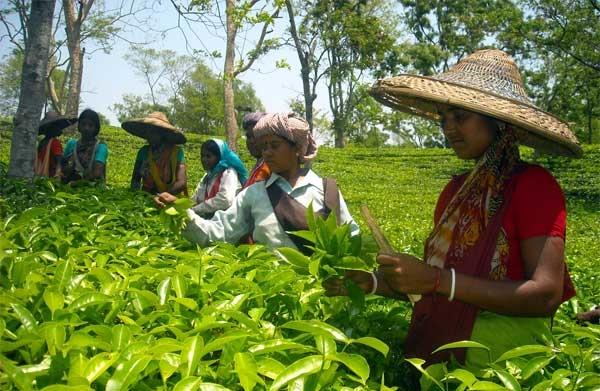Supreme Court Grants Temporary Relief to Tea Garden Workers

Image Courtesy: Northeast Today
The Supreme Court has granted some temporary relief to the tea garden workers in Assam, Kerala, Tamil Nadu and West Bengal. They directed the governments of these states to pay half the dues owed to the tea garden workers. This Order was passed in relation to a contempt petition filed by the International Union of Food Agriculture along with 3 other unions. The contempt petition itself was filed regarding a 2010 Order of the Supreme Court which had directed the Union Government to carry out its obligations under the Tea Act, 1953. This was to ensure that the Union Government would take into consideration the condition of tea gardens that had either not paid their workers or had closed without paying the workers their due.
The original petition began in 2003, when the International Union of Food and Agriculture petitioned the Court on behalf of tea garden workers after several starvation deaths had been reported. The Court took up the petition in 2006. In 2010 the Court passed the Order for the Union Government to intervene in the management of sick or closed tea gardens for the benefit of the workers. In 2011 the petitioners filed a contempt petition against the Union Government as well as several state governments for not complying with the earlier Order. This petition was registered in 2012. In short, it has taken 15 years for a direction to pay the workers their dues, and that too not in full.
It is no secret that tea gardens across the country are in a disarray. Starvation deaths were only the point from which the public was temporarily jolted into recognising the pathetic conditions of the workers. If there is any industry that has the strongest case of ‘nationalisation’ it is the tea industry. However, ‘agriculture’ falls under Entry 7 of the State List in Schedule VII to the Constitution. If state governments were to take over tea gardens en masse, Constitutional protections could be extended to the workers apart from the already existing legal protections. One example of a tea garden that is under the control of a state government is Temi Tea Estate in Temi Tarku, South Sikkim. The management is completely in the hands of the state government, and the workers earn Rs. 400 a day, unlike their counterparts in Darjeeling or the Dooars. Their children go to school, and a primary medical facility is available in the tea garden.
The present contempt petition has ensured a temporary relief, however, the malaise in the tea industry requires more than the assured payment of pending wages which in themselves are practically starvation wages. The Court has listed the petition for hearing after the summer vacation. Till then it has to be seen whether at least this direction will be complied with.
Get the latest reports & analysis with people's perspective on Protests, movements & deep analytical videos, discussions of the current affairs in your Telegram app. Subscribe to NewsClick's Telegram channel & get Real-Time updates on stories, as they get published on our website.
























